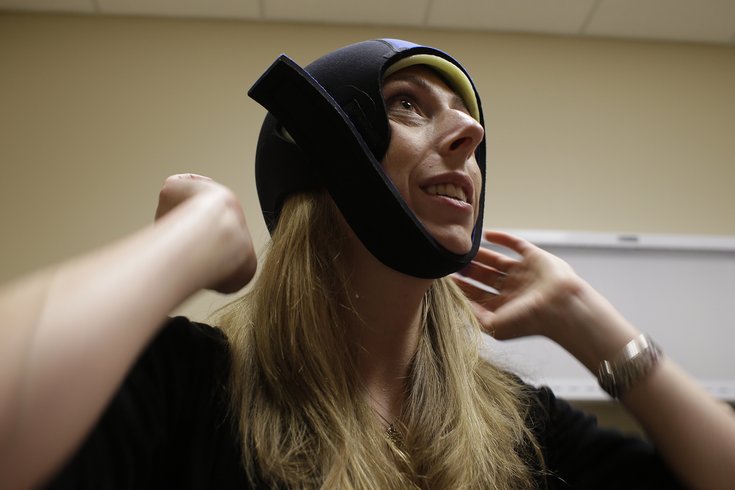
March 11, 2015
 Eric Risberg/AP
Eric Risberg/AP
In this Wednesday, July 10, 2013 photo, Katherine Serrurier, a research assistant and pre-medical intern, demonstrates the use of the Dignitana DigniCap system at the University of California San Francisco Mount Zion Hospital cancer center in California.
In the face of a life-threatening cancer diagnosis, losing one’s hair may seem like a trivial concern, but studies have discovered that hair loss is one of a patient's biggest fears.
One such study, published by the U.S. National Institutes of Health in 2010, found 47 percent of female patients considered hair loss the most traumatic aspect of chemotherapy, and 8 percent said they would decline chemotherapy because of fear of hair loss.
There are many reasons for these feelings, from vulnerability and loss of identity to vanity.
Now, a new treatment aims to eliminate that concern by allowing patients to freeze their scalps as a way to preserve most of their hair during chemotherapy.
Cold caps, as they are commonly called, are worn tightly on the head before, during and for a couple hours after a chemotherapy session.
“It’s so important for people to know we may have an F.D.A.-approved device in the near future,” Dr. Hope Rugo, the director of breast oncology at the University of California, San Francisco.
The treatment, which was the focus of a recent New York Times Well blog post, is believed to work in two ways: By reducing the temperature of the head and, thus, slowing down the metabolic activity of the follicular cells in the hair and by constricting blood vessels to limit the amount of chemotherapy that penetrates the scalp, according to Dr. Hope Rugo, the director of breast oncology at the University of California, San Francisco, which completed a 2013 pilot study and clinical trial on 120 patients.
The results have yet to be published, but the trial found most women who used a scalp-cooling cap kept most of their hair, Rugo told The New York Times.
While cap-cooling treatment is widely used in Europe, the devices have not been approved by the U.S. Food and Drug Administration, which makes the option more expensive, since it’s not typically covered by insurance.
At the Weill Cornell Breast Center in New York, one of only a few New York hospitals to offer the treatment, the cold caps can rented for about $600 a month.
But that may soon change.
“It’s so important for people to know we may have an F.D.A.-approved device in the near future,” Rugo told The New York Times.
Read the entire New York Times blog post here.